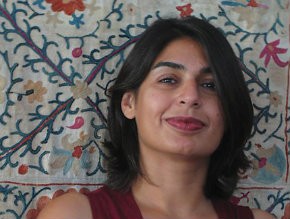From Iran to Israel: Translator Orly Noy

Orly Noy emigrated to Israel from Iran as a child during the Islamic Revolution of 1979. She has worked for All for Peace radio, a station with a staff of Israelis and Palestinians, and she has produced the first translations of modern Iranian novels into Hebrew. Recently she taught Hebrew at the University of South Florida.
Why did your family emigrate to Israel?
It had to do with us being Jewish, of course. My parents always say that they would have done it one day, even if there had not been a revolution in Iran. Somehow I doubt it.





